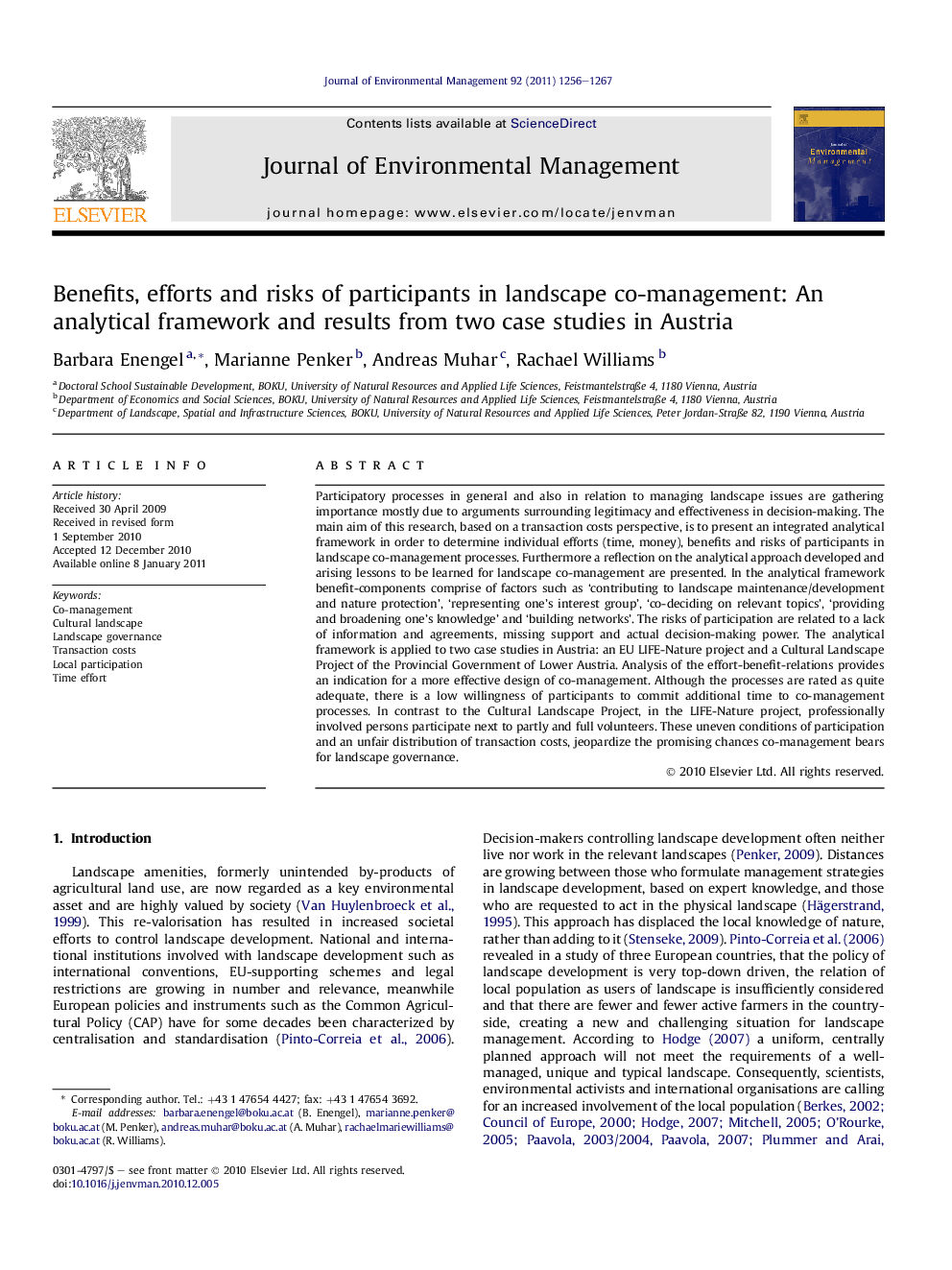| Article ID | Journal | Published Year | Pages | File Type |
|---|---|---|---|---|
| 10505594 | Journal of Environmental Management | 2011 | 12 Pages |
Abstract
Participatory processes in general and also in relation to managing landscape issues are gathering importance mostly due to arguments surrounding legitimacy and effectiveness in decision-making. The main aim of this research, based on a transaction costs perspective, is to present an integrated analytical framework in order to determine individual efforts (time, money), benefits and risks of participants in landscape co-management processes. Furthermore a reflection on the analytical approach developed and arising lessons to be learned for landscape co-management are presented. In the analytical framework benefit-components comprise of factors such as 'contributing to landscape maintenance/development and nature protection', 'representing one's interest group', 'co-deciding on relevant topics', 'providing and broadening one's knowledge' and 'building networks'. The risks of participation are related to a lack of information and agreements, missing support and actual decision-making power. The analytical framework is applied to two case studies in Austria: an EU LIFE-Nature project and a Cultural Landscape Project of the Provincial Government of Lower Austria. Analysis of the effort-benefit-relations provides an indication for a more effective design of co-management. Although the processes are rated as quite adequate, there is a low willingness of participants to commit additional time to co-management processes. In contrast to the Cultural Landscape Project, in the LIFE-Nature project, professionally involved persons participate next to partly and full volunteers. These uneven conditions of participation and an unfair distribution of transaction costs, jeopardize the promising chances co-management bears for landscape governance.
Related Topics
Physical Sciences and Engineering
Energy
Renewable Energy, Sustainability and the Environment
Authors
Barbara Enengel, Marianne Penker, Andreas Muhar, Rachael Williams,
